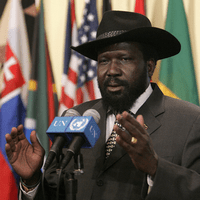JUBA, Sudan -- It's not every day that a new nation is born, even if the prospect is not unheard of in sub-Saharan Africa's recent history. For south Sudan, the long and bitter struggle for autonomy and freedom from a series of oppressive Khartoum governments has made the looming reality of the Republic of South Sudan -- as the state will be known after it becomes independent on July 9 -- all the more meaningful for its diverse population.
As was evident in the immediate, jubilant aftermath of the January referendum that decided south Sudan's fate, this historic moment is cause for celebration for the roughly 9 million southern Sudanese people living in the Afghanistan-sized territory, as well as for the tens of thousands more found in a far-flung diaspora that ranges from Australia to the United States and beyond. Southerners showed they were united in their shared and overwhelming desire to see Sudan -- Africa's largest country geographically -- split in two. The seven-day vote took place peacefully, and when the result was announced in February, it was nearly unanimously in favor of secession.
Southern independence came at a heavy cost for the citizens of this soon-to-be state. The north-south civil war, which lasted for more than two decades, left at least 2 million people dead, with mortality assessments indicating that as many died from hunger, disease and deprivation as from direct conflict. The 2005 Comprehensive Peace Agreement (CPA) that brought an end to the war is still hailed as one of the great diplomatic successes in recent history. The multilateral international effort over the course of several years brought the warring north and south together to forge a complex ceasefire that has held for the past six years.

